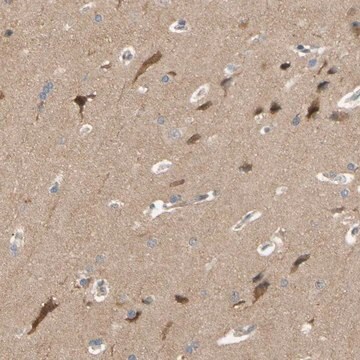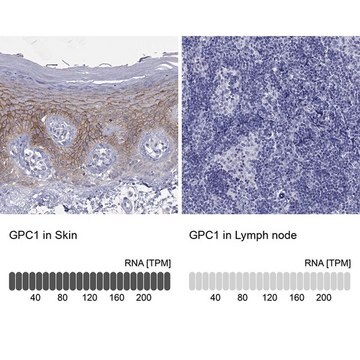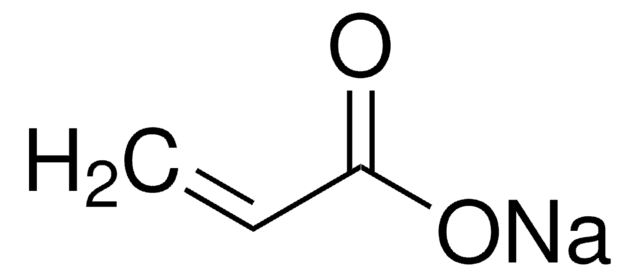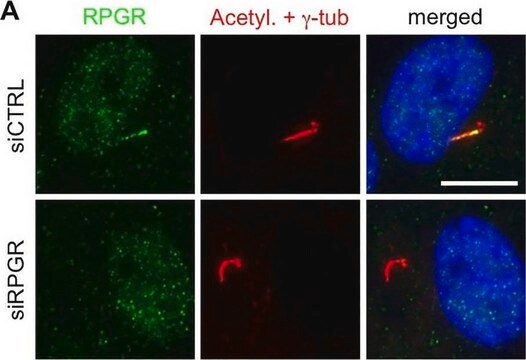MAB2600
Anti-Glypican-1 Antibody, clone 4D1
clone 4D1, from mouse
Sinónimos:
glypican 1, glypican proteoglycan 1
About This Item
Productos recomendados
origen biológico
mouse
Nivel de calidad
forma del anticuerpo
purified antibody
tipo de anticuerpo
primary antibodies
clon
4D1, monoclonal
reactividad de especies
human, rat
técnicas
immunohistochemistry: suitable (paraffin)
western blot: suitable
isotipo
IgG1κ
Nº de acceso NCBI
Nº de acceso UniProt
Condiciones de envío
wet ice
modificación del objetivo postraduccional
unmodified
Información sobre el gen
human ... GPC1(2817)
rat ... Gpc1(58920)
Descripción general
cell-associated forms, including syndecans, glypicans, and secreted extracellular matrix forms, such as perlecan. Glypicans contain six family members to date and are proteins bound to the outer surface of the plasma membrane by a glycosyl-phosphatidylinositol anchor and involved in cellular adhesion and migration and function as accessory molecules for signaling receptors, (Filmus, 2008 & Gui, 2006). Current publications indicate the main function of membrane-attached glypicans is to regulate the signaling of Wnts, Hedgehogs, fibroblast growth factors and bone morphogenetic proteins (BMPs), (Filmus, 2008).
Glypican-1 (GPC1) is over-expressed in human gliomas and appears to have a greater capability of promoting FGF-2 signaling in some gliomas versus HSPGs in normal astrocytes. Additional observations suggest that GPC1 can impact the growth of pancreatic cancer cells by attenuating tumor angiogenesis, (Whipple, 2008).
Especificidad
Inmunógeno
Aplicación
A 1:50 dilution of a previous lot detected strong cytoplasmic staining of tumor cells in formalin-fixed, paraffin-embedded gangliobastoma tissue sample. There was negative staining of normal, uninvolved cells.
Cell Structure
ECM Proteins
Calidad
Descripción de destino
Forma física
Almacenamiento y estabilidad
Nota de análisis
PC-12 cell lysate.
Otras notas
Cláusula de descargo de responsabilidad
¿No encuentra el producto adecuado?
Pruebe nuestro Herramienta de selección de productos.
Código de clase de almacenamiento
12 - Non Combustible Liquids
Clase de riesgo para el agua (WGK)
WGK 1
Punto de inflamabilidad (°F)
Not applicable
Punto de inflamabilidad (°C)
Not applicable
Certificados de análisis (COA)
Busque Certificados de análisis (COA) introduciendo el número de lote del producto. Los números de lote se encuentran en la etiqueta del producto después de las palabras «Lot» o «Batch»
¿Ya tiene este producto?
Encuentre la documentación para los productos que ha comprado recientemente en la Biblioteca de documentos.
Nuestro equipo de científicos tiene experiencia en todas las áreas de investigación: Ciencias de la vida, Ciencia de los materiales, Síntesis química, Cromatografía, Analítica y muchas otras.
Póngase en contacto con el Servicio técnico








